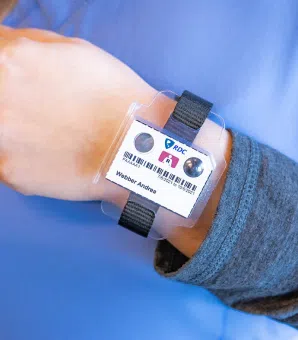
Dosimeter badge services for medical, dental, and veterinary businesses
Learn how Radiation Detection Company’s easy-to-use dosimetry solutions can boost the efficiency of your practice.
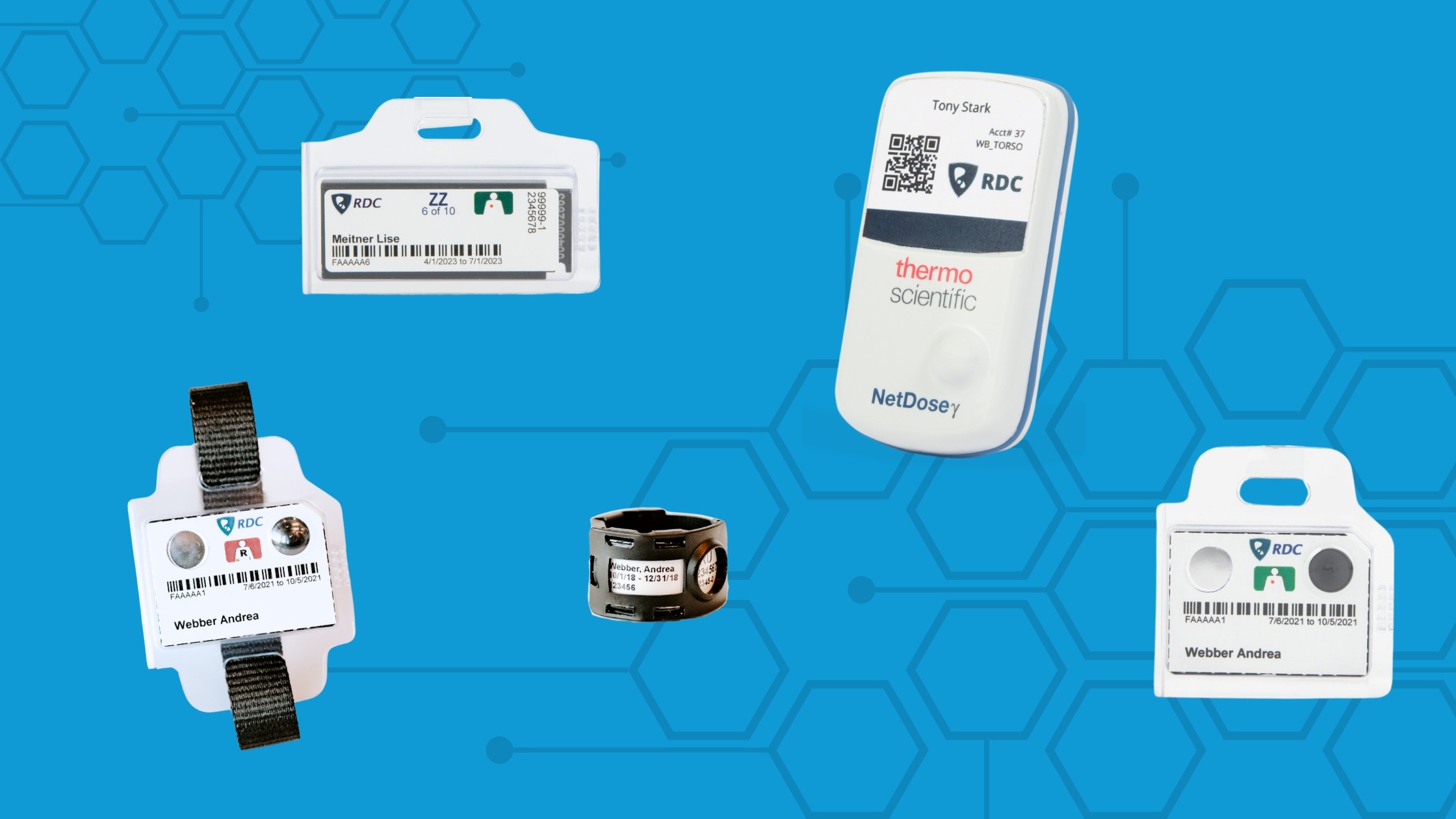
Dosimetry Consultant
Last Updated: September 4, 2024
Discover everything you need to know about a radiation badge, including its purpose, the different types, and their importance in monitoring and ensuring safe radiation exposure in occupational settings.
There are many factors to consider when choosing a radiation badge service. Whether you’re new to radiation monitoring or a seasoned veteran, this article provides a thorough overview of radiation badges.
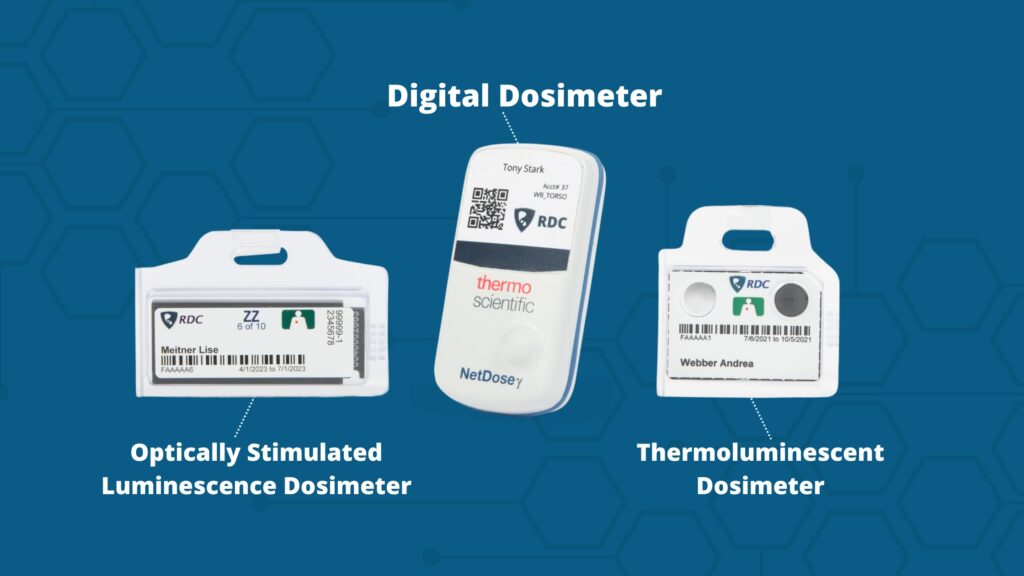
A radiation badge, also commonly called a personal dosimeter or dosimetry badge, is a device that measures the absorbed dose of ionizing radiation for personnel in occupational contact with radioactive materials or radiation-emitting equipment.
Radiation badges are the main component of radiation dosimetry, which is the accurate and systematic measurement, calculation, and assessment of the ionizing radiation doses absorbed by matter or tissue.
Dosimetry has two branches: internal absorption and external radiation. Radiation badges are crucial for external radiation.
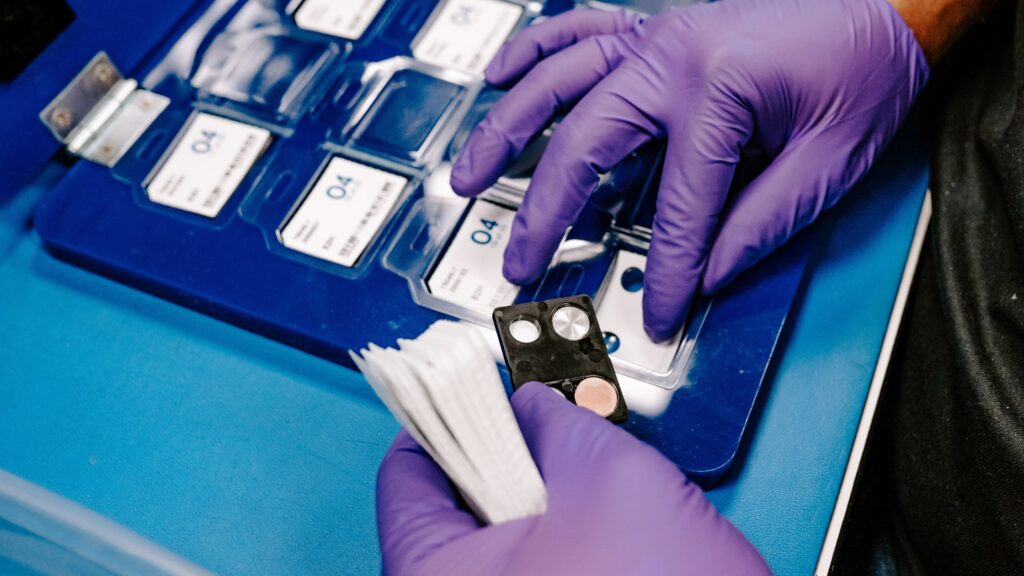
The five types of ionizing radiation include:
Note: non-ionizing radiation, a low-energy radiation type that doesn't have enough energy to remove an electron from an atom or molecule, includes microwaves, radio waves, and visible, infrared, and ultraviolet light.
Learn more about the different types of radiation in this blog post: Alpha Particles, Beta Particles, and Gamma Rays - Common Types of Radiation
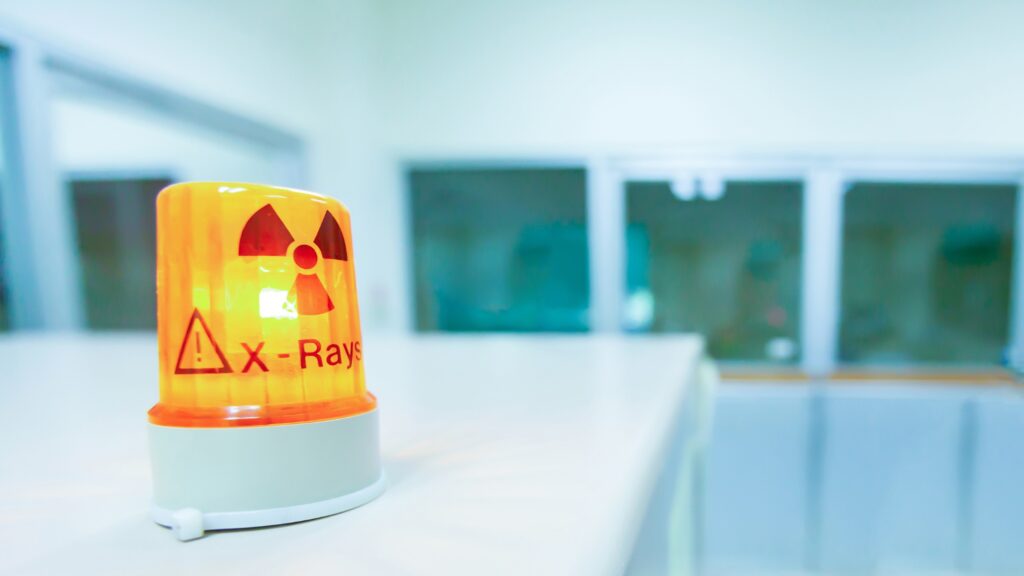
Although Wilhelm Conrad Röntgen discovered radiation in 1895, radiation safety didn't become a priority in the United States until the late 1920s. Even then, formal recommendations were not universally accepted until the late 1940s (after WWII).
Before this time, some employees who worked with radiation would undergo blood tests a couple of times a year that would analyze potentially significant decreases in what occurred in white blood cell and platelet counts. This method was phased out by the mid-1950s when film badges became the first personal dosimeters.
Employees would wear early whole body film badges on the chest in combination with wrist badges. Film badges were not very sensitive, and adverse environmental conditions like temperature and humidity could easily skew the results. Employees had to exchange early film badges every two weeks for processing, lab analysis, and reporting.
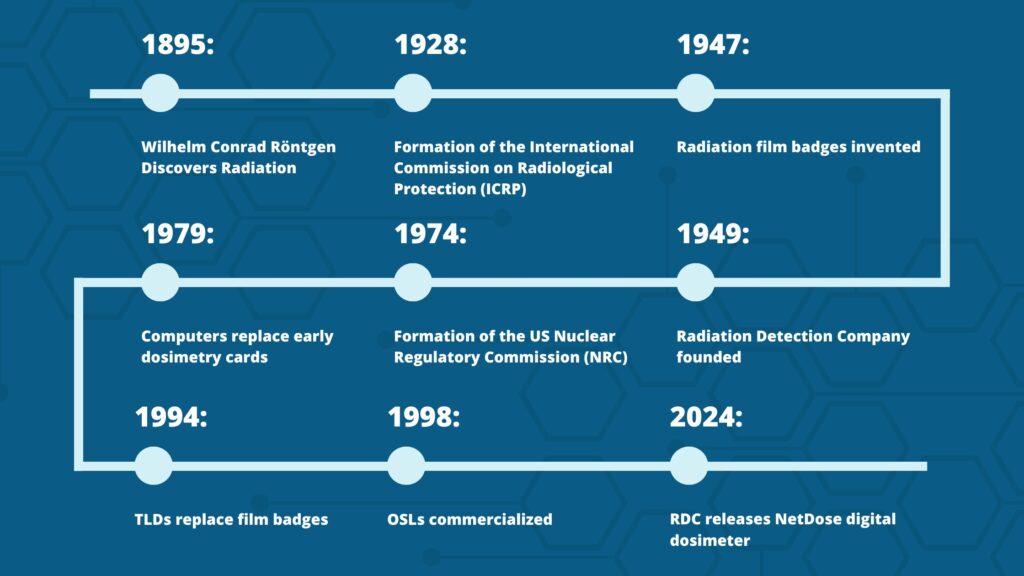
Originally, dosimeter service providers recorded results on index-sized dosimetry cards to document an employee's cumulative external exposure to radiation. This process continued until the late 1970s.
In 1979, an early computer system replaced dosimetry cards, and film badges were soon outpaced in 1994 by thermoluminescent dosimeters (TLD). In 1998, optically stimulated luminescence (OSL) dosimeters became a comparable alternative to TLDs.
Over the years, and with more technological developments, dosimeter badges have become more sensitive, which has made them better at protecting radiation workers.
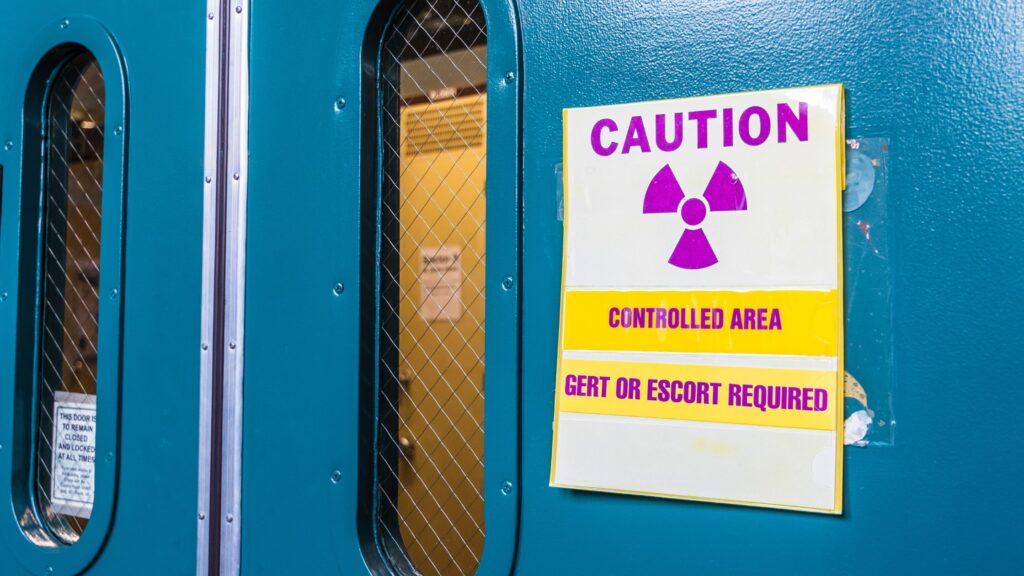
The US Nuclear Regulatory Commission (NRC) established dose limits for occupational exposure for people working with radioactive materials or ionizing radiation as a form of radiation protection for personnel monitoring.
Dosimetry badges help ensure radiation workers do not exceed the allowable limits established by governing bodies.
Personal dosimeters are the most common instruments used to calculate absorbed dose – not dose rate. Absorbed dose measures energy deposited in matter by ionizing radiation per unit mass.
Absorbed doses are a measurable quantity and a key component of radiation protection.
While thermoluminescent dosimeters and optically stimulated luminescence dosimeters provide a solution in personal dosimetry, the analysis process is slightly different.
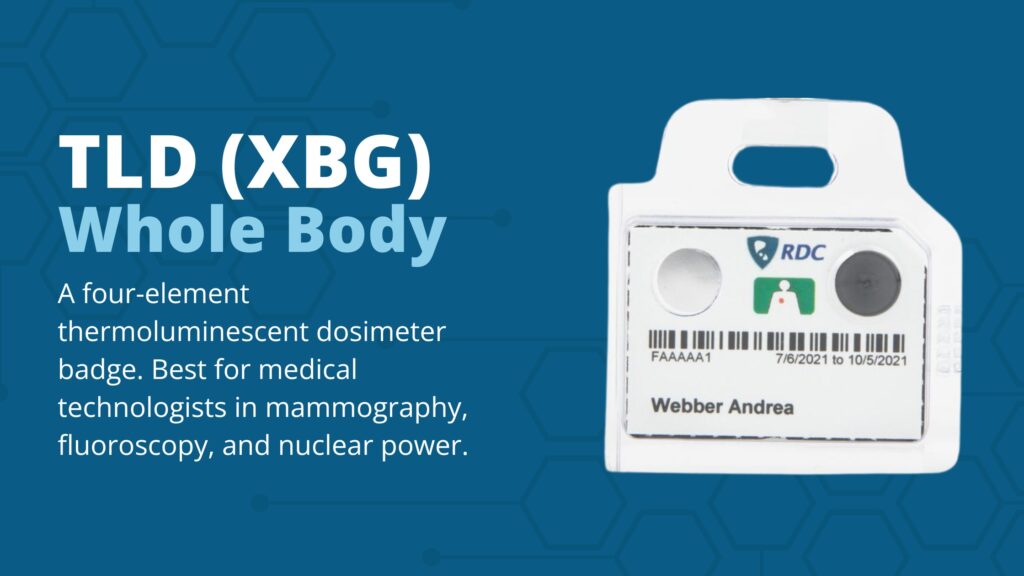
The material makeup of TLD and OSL dosimeters is very similar in that both use crystalline solids. They capture point dose measurements or radiation doses in a relatively small volume, and both are single-measurement detectors, which need further processing for a readout (different from detectors used in relative dosimetry).
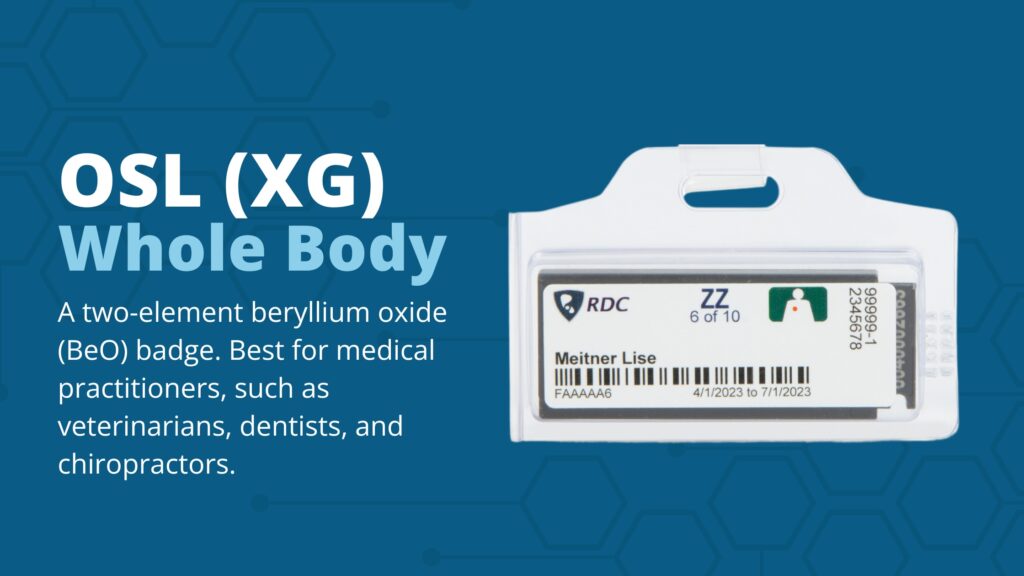
The essential difference between a TLD and an OSL dosimeter is that a TLD requires heat, while an OSL dosimeter requires only optical stimulation.
Learn more about the differences between TLD and OSL badges in this blog post: TLD vs. OSL Dosimeter - Types of Dosimeters
The lower limit of detection (LLD) in radiation monitoring refers to the smallest amount of radiation that can be reliably detected and measured by a dosimeter. This threshold is critical for ensuring accurate monitoring and protection against radiation exposure.
The LLD varies depending on the type of dosimeter, the technology used, and the specific monitoring requirements. To find the appropriate LLD for your equipment, consult your radioactive materials license.
NVLAP accreditation demonstrates a laboratory's commitment to quality, competence, and customer satisfaction, making it an essential consideration for those seeking reliable testing and calibration services.
All RDC dosimeters are NVLAP-accredited (NetDose Lab Code 600295-0, TLD, and OSL Lab Code 100512-0).
Radiation Detection Company offers different reporting timelines to suit your organization's needs. Choose from quarterly, bi-monthly, or monthly reporting and make changes as needed.
Need instant access to dose reports? NetDose™ Dosimeter, our digital dosimeter, might be the best option for you.
Some of your staff may require additional monitoring outside of whole body badges to calculate the dose received on extremities or fetal doses.
For example, veterinary staff often hold animals down during X-ray services – in this case, they'd need to calculate the exposure using a hand or wrist badge. Depending on your industry requirements, you may also want to consider area monitoring services.
Need more support building an order? Start with our badge order guide. We'll walk you through each step, provide tips and tricks to get all the necessary information, and help you set up an account for quick and easy badge service.
We've outlined some of the badge offerings in further detail below.
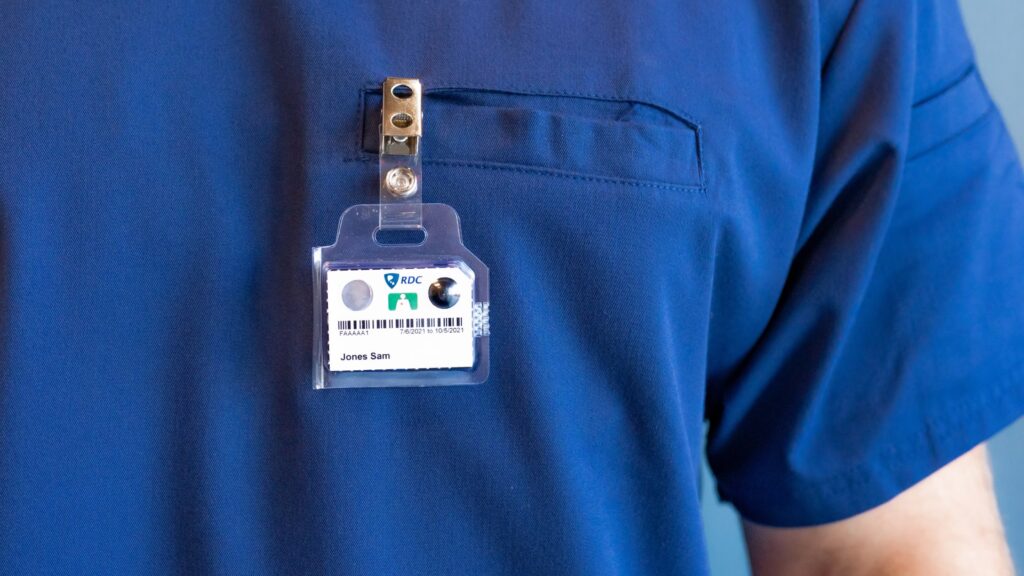
In the realm of external radiation exposures, a “whole body” badge includes the head, torso, arms above the elbow, or legs above the knee. The Standard Type 82 TLD-XBG badge or Type 83 TLD-XBGN badge for neutron is a four-element radiation badge with a minimal reportable dose of 10 mrem (0.1 mSv).
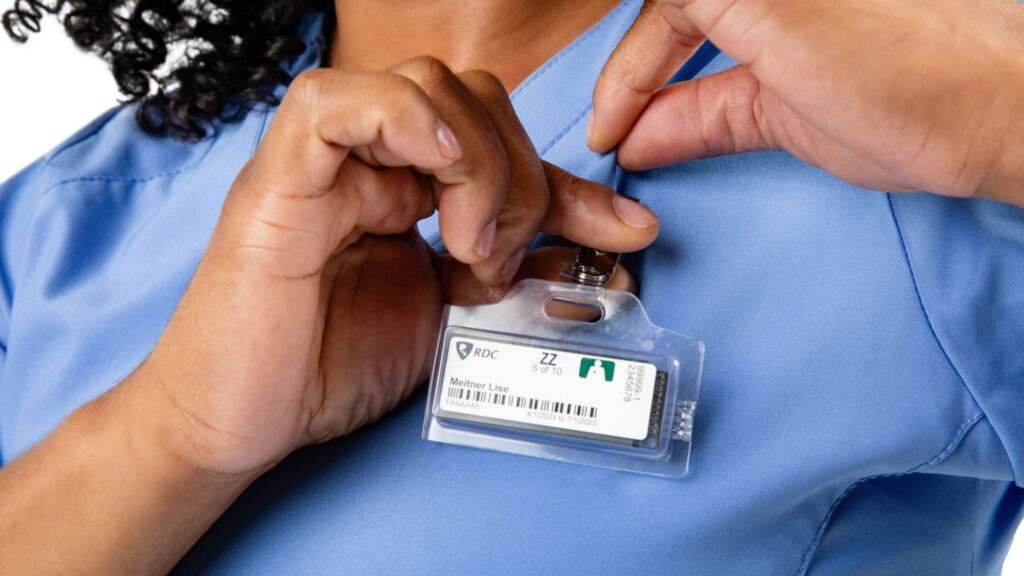
The standard OSL badge (or Type 84 badge for photon monitoring) is a 2-element beryllium oxide (BeO) badge with a minimum reportable dose of 10 mrem (0.1 mSv) and a LLD of 1 mrem (0.01 mSv).

The TLD-XBG Extremity is a single-element ring dosimeter for extremities. The ring badge is available for radiation workers whose job functions potentially require their extremities (like fingers) to receive a higher exposure.
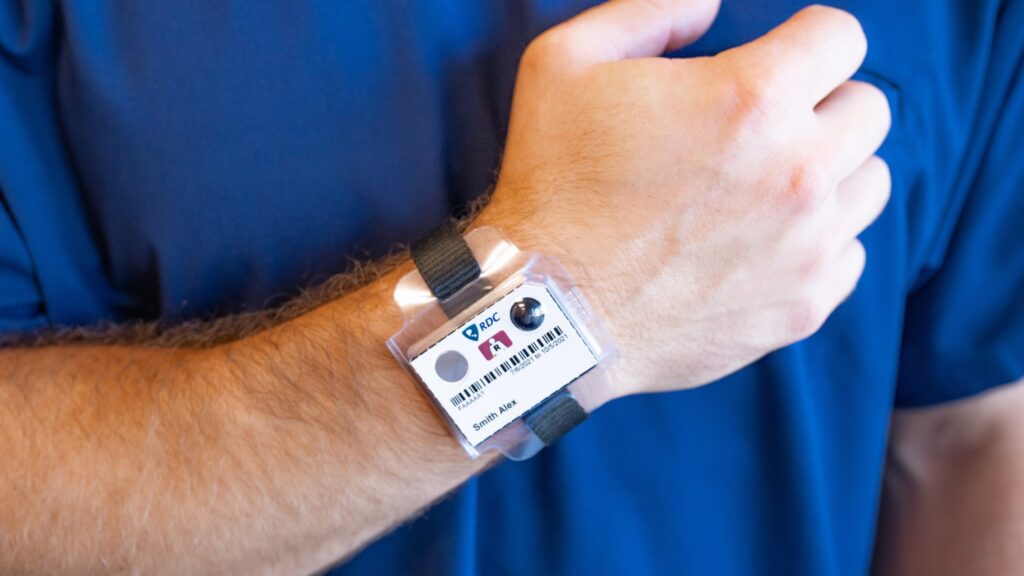
The Standard Type 82 TLD-XBG badge or Type 83 TLD-XBGN neutron badge is a four-element dosimeter badge with a minimal reportable dose of 10 mrem (.10 mSv). Fitted with a Velcro strap, the wrist badge is available for radiation workers whose arms may receive a higher exposure.
Wrist and ring badges can be especially helpful for staff who need to use their extremities to support a patient during X-ray sessions or image-guided therapy.
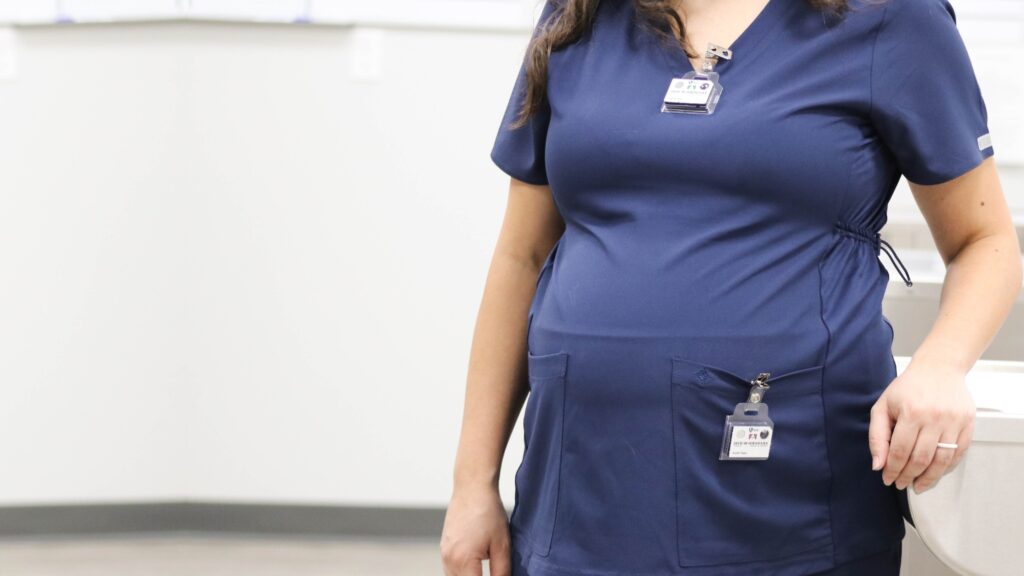
The Standard Type 82 TLD-XBG badge or Type 83 TLD-XBGN neutron fetal monitor is a four-element radiation badge with a minimal reportable dose of 10 mrem (.10 mSv).
Fetal monitors are available for pregnant radiation workers to ensure the fetus does not exceed 500 mrem for the entire gestational period. Pregnant employees should wear the badge close to the embryo/fetus to obtain the most accurate dose.
For more information on radiation safety for pregnant employees, please read this blog: Understanding All Things Radiation Protection & Pregnancy
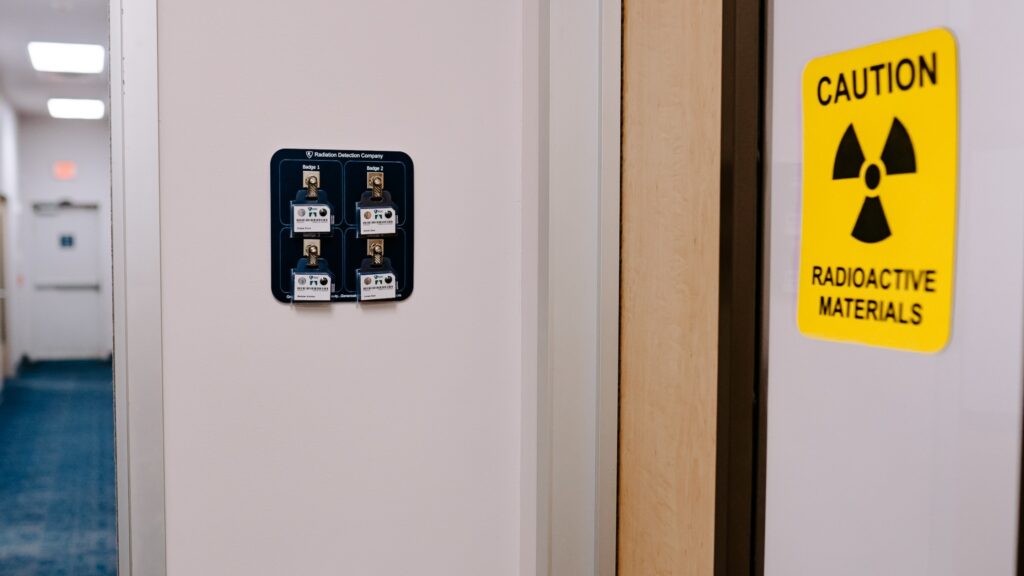
Organizations can use area monitors to ensure that the public is not exposed to more than 100 mrem/year of radiation outside a room or building. In addition, they can monitor the occupational dose to employees in a room where the source is located or near a source that radiation could potentially reach.
Need help evaluating your dosimeter badge service needs? Check out this blog post – Evaluate Your Needs: What to Look for Before Getting a Dosimeter
We understand that choosing the right dosimetry solution can be overwhelming – that's why our world-class customer service team is happy to help you make the best decision for your organization.

Radiation Detection Company has 75 years of experience providing quality dosimetry service to over 31,000 companies worldwide. Need help understanding your organization's dosimetry needs? Please contact us, and our team will be happy to provide guidance.
Do you have a question that we did not address in this article? Please contact our Customer Care team, and one of our specialists will be more than happy to help.
If you've already determined the best badge fit for your organization, you can build your order here.
A radiation badge, also known as a dosimeter, is a device worn by individuals who work with or around radiation or radiation-emitting equipment, like an X-ray machine. Radiation badges measure and monitor the amount of ionizing radiation exposure the wearer receives over time.
Dosimetry monitoring helps ensure that the individual's exposure remains within safe limits and complies with regulatory guidelines. The badge records the accumulated radiation dose, which is later analyzed to assess the wearer's exposure and determine any necessary safety measures.
A radiation measure badge, also known as a dosimeter, is a device worn by individuals to monitor their exposure to ionizing radiation. The badge typically uses technologies like thermoluminescent dosimeters (TLD), optically stimulated luminescence (OSL) dosimeters, or digital dosimeters to detect and record radiation levels. The collected data is then analyzed to assess the wearer's exposure and implement necessary safety measures.
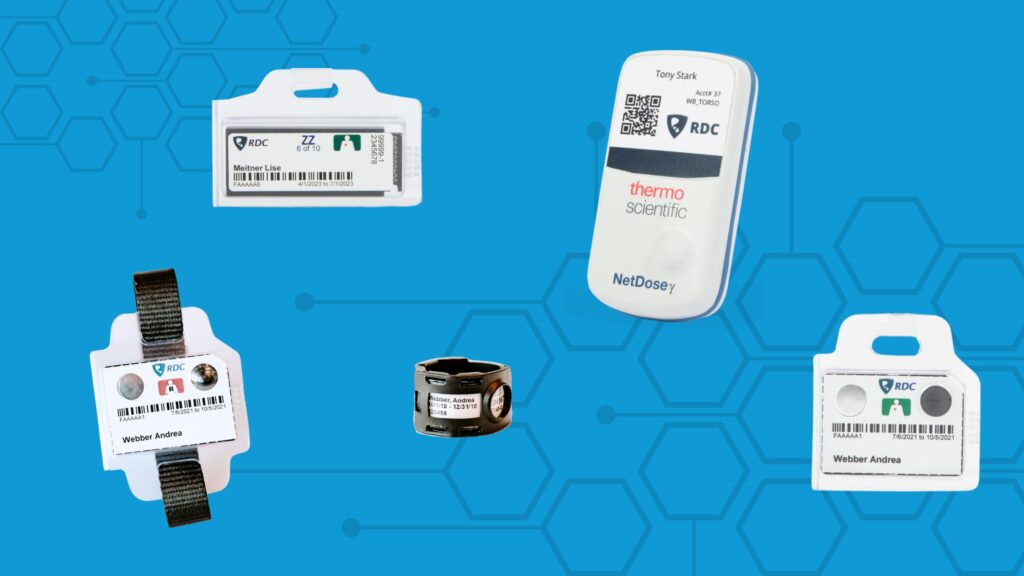
Individuals required to wear a radiation dosimeter include healthcare workers, dental professionals, veterinary workers, nuclear industry workers, lab personnel and researchers, aviation crew, electronics manufacturing employees, first responders, and industrial radiographers.
Dosimeters help monitor and ensure safety in occupational settings. Some employees may benefit from wearing a whole body badge and an extremity badge, for example, when patients need physical support during radiation treatment, image-guided therapy, or other X-ray services.
Radiation workers wear film badges to monitor their radiation exposure over time, ensuring employee exposure remains within safe limits to keep organizations in compliance with radiation safety guidelines. These badges help protect their health by reducing the risk of radiation-related issues and provide essential data for investigating incidents. Additionally, film badges maintain a permanent record of exposure history, facilitating long-term health monitoring and contributing to a safer working environment.
Radiation is the emission or transmission of energy through waves or particles through space or a material medium, and radioactivity describes the rate at which radioactive material emits radiation.
Learn how Radiation Detection Company’s easy-to-use dosimetry solutions can boost the efficiency of your practice.